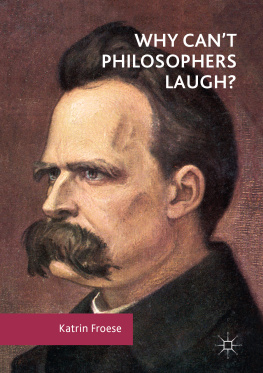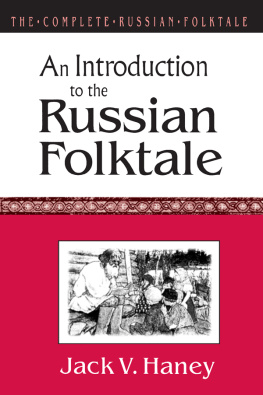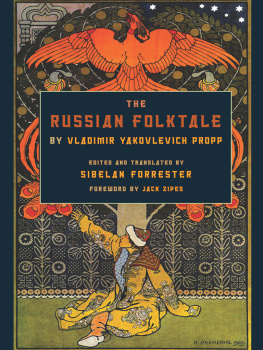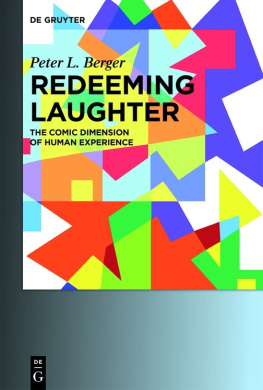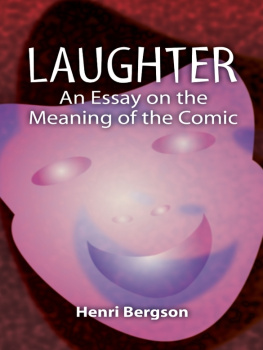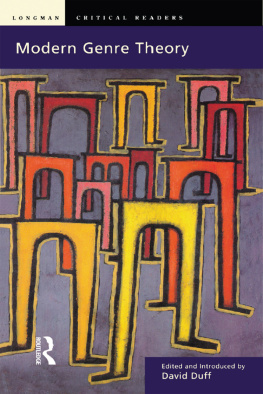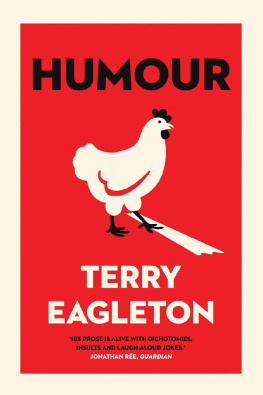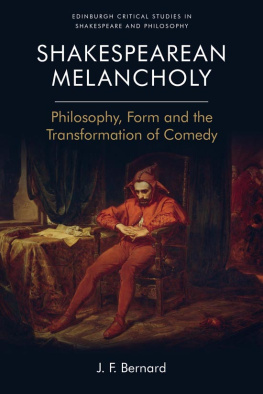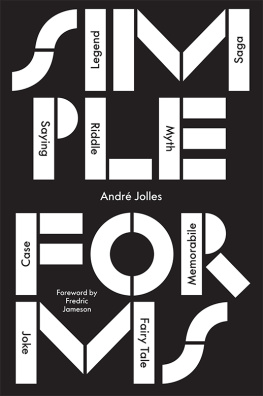Propp Vladimir Âkovlevič - On the Comic and Laughter
Here you can read online Propp Vladimir Âkovlevič - On the Comic and Laughter full text of the book (entire story) in english for free. Download pdf and epub, get meaning, cover and reviews about this ebook. City: Toronto, year: 2009, publisher: University of Toronto Press, genre: Science. Description of the work, (preface) as well as reviews are available. Best literature library LitArk.com created for fans of good reading and offers a wide selection of genres:
Romance novel
Science fiction
Adventure
Detective
Science
History
Home and family
Prose
Art
Politics
Computer
Non-fiction
Religion
Business
Children
Humor
Choose a favorite category and find really read worthwhile books. Enjoy immersion in the world of imagination, feel the emotions of the characters or learn something new for yourself, make an fascinating discovery.

- Book:On the Comic and Laughter
- Author:
- Publisher:University of Toronto Press
- Genre:
- Year:2009
- City:Toronto
- Rating:3 / 5
- Favourites:Add to favourites
- Your mark:
- 60
- 1
- 2
- 3
- 4
- 5
On the Comic and Laughter: summary, description and annotation
We offer to read an annotation, description, summary or preface (depends on what the author of the book "On the Comic and Laughter" wrote himself). If you haven't found the necessary information about the book — write in the comments, we will try to find it.
The author of the widely acclaimed Morphology of the Folktale has written an original, comprehensive, and exciting study on how humour works, and on everything you wanted to know about the genre, in a clear, approachable, and insightful manner.
On the Comic and Laughter — read online for free the complete book (whole text) full work
Below is the text of the book, divided by pages. System saving the place of the last page read, allows you to conveniently read the book "On the Comic and Laughter" online for free, without having to search again every time where you left off. Put a bookmark, and you can go to the page where you finished reading at any time.
Font size:
Interval:
Bookmark:
ON THE COMIC AND LAUGHTER
Edited and Translated by Jean-Patrick Debbche and Paul Perron
Vladimir Propp

University of Toronto Press Incorporated 2009
Toronto Buffalo London
www.utppublishing.com
Printed in Canada
ISBN 9780-80209926-6

Printed on acid-free and 100% post-consumer recycled paper with vegetable-based inks.
Toronto Studies in Semiotics and Communication Editors: Marcel Danesi, Umberto Eco, Paul Perron, Roland Posner, Peter Schulz
Library and Archives Canada Cataloguing in Publication
Propp, V. IA. (Vladimir Iakovlevich), 18951970
On the comic and laughter / Vladimir Propp ; edited and translated by Jean-Patrick Debbche and Paul Perron.
Translation of: Problemy komizma i smekha.
Includes bibliographical references.
ISBN 9780-80209926-6
1. Comic, The, in literature. 2. Laughter in literature. 3. Humor in literature. I. Debbche, Jean-Patrick II. Perron, Paul III. Title.
BH301.C7P7613 2009 809.917 C2009902338-5
University of Toronto Press acknowledges the financial assistance to its publishing program of the Canada Council for the Arts and the Ontario Arts Council.
University of Toronto Press acknowledges the financial support for its publishing activities of the Government of Canada through the Book Publishing Industry Development Program (BPIDP).
This book has been published with the help of a grant from the Canadian Federation for the Humanities and Social Sciences, through the Aid to Scholarly Publications Program, using funds provided by the Social Sciences and Humanities Research Council of Canada.
Voltaire said that heaven has given us two things to counterbalance the many hardships in life: hope and sleep. He might have added laughter, if only the means for arousing it in reasonable people were as easy to come by, and if the wit or whimsical originality needed for it were not just as rare, as the talent in common for people to write, as mystical ponderers do, things that break your head, or to write as geniuses do, things that break your neck, or to write as sentimental novelists do (also, I suppose, sentimental moralists), things that break your heart.
Immanuel Kant (1987, 54.334: 203)
Vladimir Jakovlevich Propps posthumous work, On the Comic and Laughter which was published for the first time in Russian in 1976 as Problemy komizma i smekha, six years after his death on 2 August 1970, makes a significant contribution to the study of humour and laughter. Far from being yet another treatise on the comic, this work a thorough analysis of the underlying principles of humour focuses mainly on the forms and functions of the comic in literature while also examining its manifestations in many other media. This is the first English edition of a seminal work that has so far been translated into Serbian (1984), Italian (1988), and Chinese (1998). Propps interest in the comic dates back to his early work; in 1939 he published the article Ritualniy smekh v folklore (Ritual Laughter in Folklore).
As Liberman (1984) points out in his introduction to Propps Theory and History of Folklore, Propps work was not widely circulated among Russian scholars. Nonetheless his most innovative and pioneering study on narrative, Morphology of the Folktale (1928), acclaimed in the West for its originality and for its decisive impact on narrative theory and methodology in numerous disciplines in the social sciences and humanities. His research on narrative was so transformative that scholars integrated it into their own theories and extended it internationally to a large number of aesthetic forms, including film and theatre.
We could say of the comic what Roland Barthes (1966) wrote about narrative: Numberless are the forms of the comic. Both appear in many guises and can be articulated through spoken and written language, moving or fixed images, or gestures, as well as a combination of any or all of these. The renowned Canadian humorist and theorist of humour, Stephen Leacock (1943), when examining the various forms of the verbal comic, noted that humorous literature can be classified hierarchically: the most primitive forms are puns and bad spelling; next is the wide range of burlesque writing, followed by a higher form humorous scenes and funny episodes. He concludes that the comic is not a frivolous form but in fact encompasses the illogical nature of human life: And above that again the presentation of character in the light of humour, and highest of all, the sublime humour that reflects through scene or character the incongruity of life itself (223). Contrary to Leacocks hierarchical classification, Propp deconstructs the dichotomy of low and high comic in a very precise and rigorous manner and then sets it aside. It will become apparent that in his analysis he goes far beyond Leacock when, after studying the facts and the data, he finds it necessary to raise the issue of the comics artistic and moral dimensions, as well as its negative effects. Propp begins his theoretical inquiry by postulating the following principle: an aesthetics that separates itself from life is too abstract to suit the purposes of real cognition. Yet true to his method, he argues with great conviction that this problem should be dealt with only after a detailed examination of the data.
Like many contemporary thinkers, Propp recognized the difficulty of defining the complexity of laughter and the comic. The very first sentence in Bergsons (2005) work on laughter (originally published in French in 1900 as Le rire : essai sur la signification du comique) asks this fundamental question: What does laughter mean? What is the basal element in the laughable? The greatest of thinkers, from Aristotle downwards, have tackled this little problem, which has a knack of baffling every effort, of slipping away and escaping only to bob up again, a pert challenge flung at philosophic speculation (1). Some years later, Leacock (1916) wrote that no attempt to define humour had ever succeeded. Propp was aware of this awesome challenge and attempted not only to provide a rigorous definition of this phenomenon but also to work out a theory and methodology that would permit him to deal with such a thorny issue.
When faced with the enormous diversity of the manifestations of the comic, Propp did not attempt to find a unique pattern, as he did in Morphology of the Folktale, in which he reduced tales to a single plot comprising thirty-one functions. Instead, he developed a methodology that accounted for the plethora of comic utterances and features that constituted his data, or corpus. He undertook a systematic study, incorporating the variants and examining them not in isolation but in light of their interrelationships. Propp (1984) clearly articulated this principle in his response to Claude Lvi-Strausss review of the Morphology of the Folktale when he made the point that this strategy was in agreement with Engels who called the study of isolated phenomena metaphysical thinking as opposed to dialectical study: An exact representation of the universe, of its evolution and that of mankind, as well as the reflection of this evolution in the human mind, can therefore only be built up in a dialectical way, taking constantly into account the general actions and reactions of becoming and ceasing to be, of progressive or retrogressive changes (125). This does not mean that Propps approach to the study of the comic is purely philosophical. He takes an empirical approach, observing life rather than reflecting on the abstract, and though he adheres to the idea that satire is an instrument for criticizing the bourgeoisie the counter-revolutionaries his empirical approach to humour goes beyond the dominant socio-political discourse of the times without directly confronting it. analysis on an inductive method that does not proceed from hypotheses but rather from direct examination of data, in the belief that sciences can no longer be founded on the mere creation of hypotheses (4). This inductive method corresponds to the Danish linguist Hjelmslevs (1953) definition of empiricism, which should fulfil three conditions: the first, non-contradiction; the second, exhaustibility; and the third, simplicity. In an ideal world, the principle of exhaustibility could lead to a classification of all possible variants of the comic and laughter. Propp does not claim to exhaust systematically the totality of all occurrences, but he does constitute his corpus according to the principle of representativity, based on a selection of the salient manifestations of humour from his extensive data. To this end, he offers a broad array of examples, including classical authors and folklore, comic and satirical magazines, and newspaper satire. He examines not only purely literary works but also the circus, variety shows, and comic films.
Next pageFont size:
Interval:
Bookmark:
Similar books «On the Comic and Laughter»
Look at similar books to On the Comic and Laughter. We have selected literature similar in name and meaning in the hope of providing readers with more options to find new, interesting, not yet read works.
Discussion, reviews of the book On the Comic and Laughter and just readers' own opinions. Leave your comments, write what you think about the work, its meaning or the main characters. Specify what exactly you liked and what you didn't like, and why you think so.

